Sule James is guiding his students toward a deeper understanding of humanity through art. As a teacher-scholar postdoctoral fellow in the department of art, he educates his students from the variety of perspectives that inform his work. His emphasis as a postdoc remains on teaching, although the position permits him to engage in research and write. James specializes in the interdisciplinary field of visual studies, “a study of images and issues,” he summarized. “Many issues overlap and intersect. Our world is a visual world, human culture is a visual culture,” he added. He is teaching Wake Foresters not merely how to look upon the human experience but how to live into it.
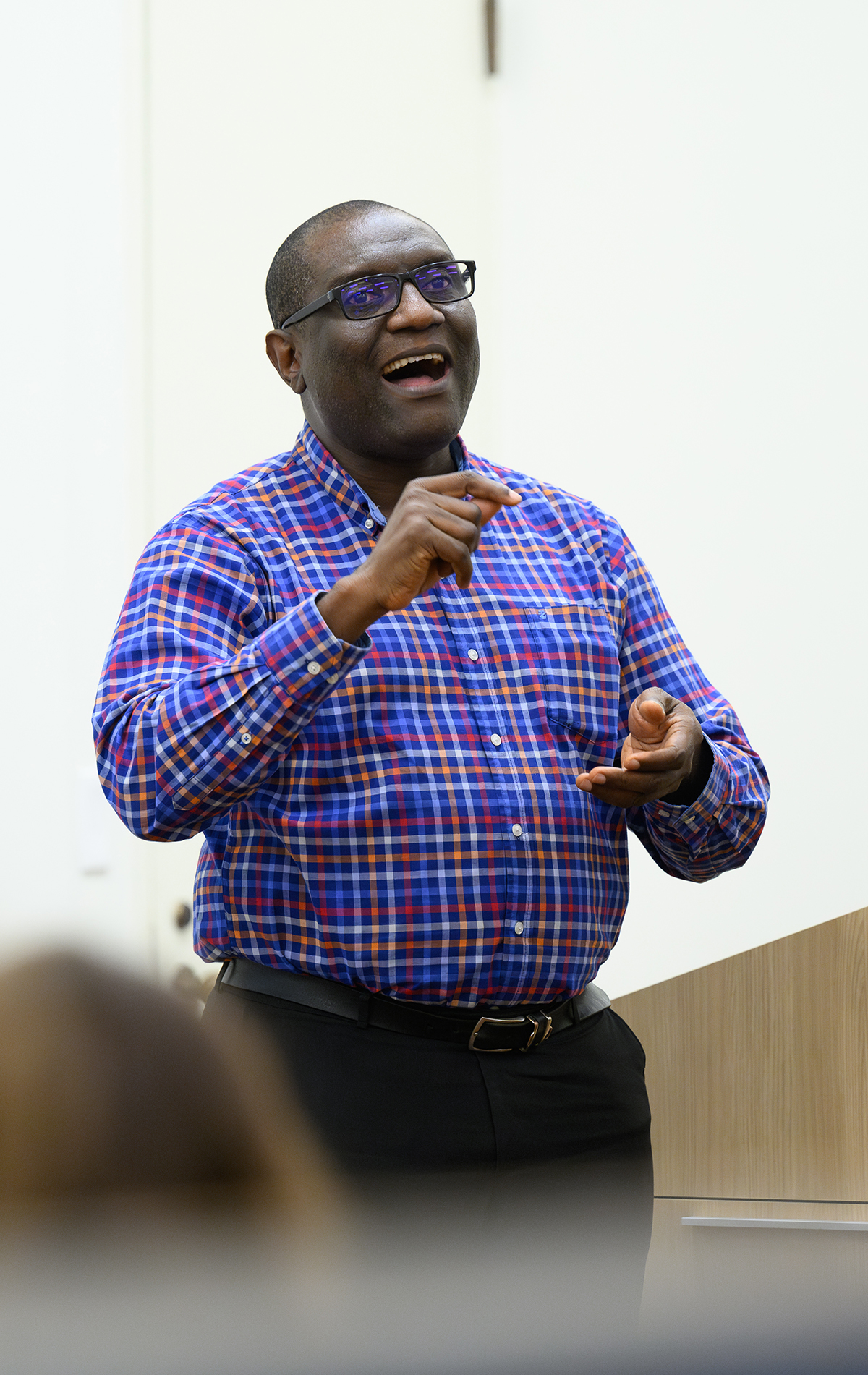
James shared that in his global art class, “we are studying how different people reflect on different experiences.” In their shared journey, he and his students examine what’s actually happening in the world. For instance, “in Nigeria, visual images comprise a counternarrative from the youth” to the political situation.
“Interactivity on digital platforms – social media – is playing an important role in communicating the reality.”
Together, James and his students explore “exchange movements” and make “cultural encounters” along the way. “Every art has a history,” he noted.
“We study art in relation to its history and culture. People are on the move, and culture and materials are moving with them.“ Artists expose and enlighten their audiences to see in what ways we can be more human. Art is what it takes to be human,” he said.
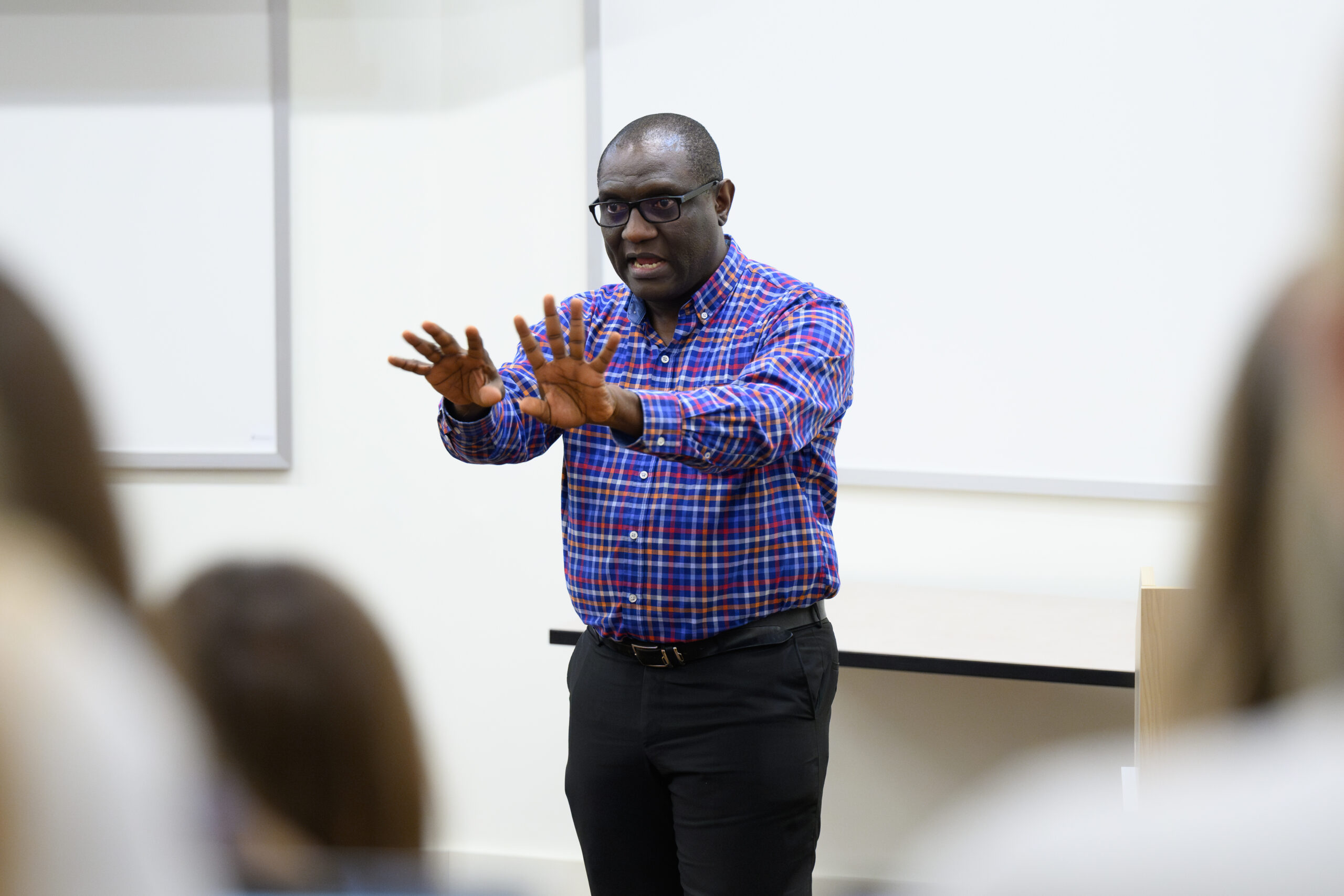
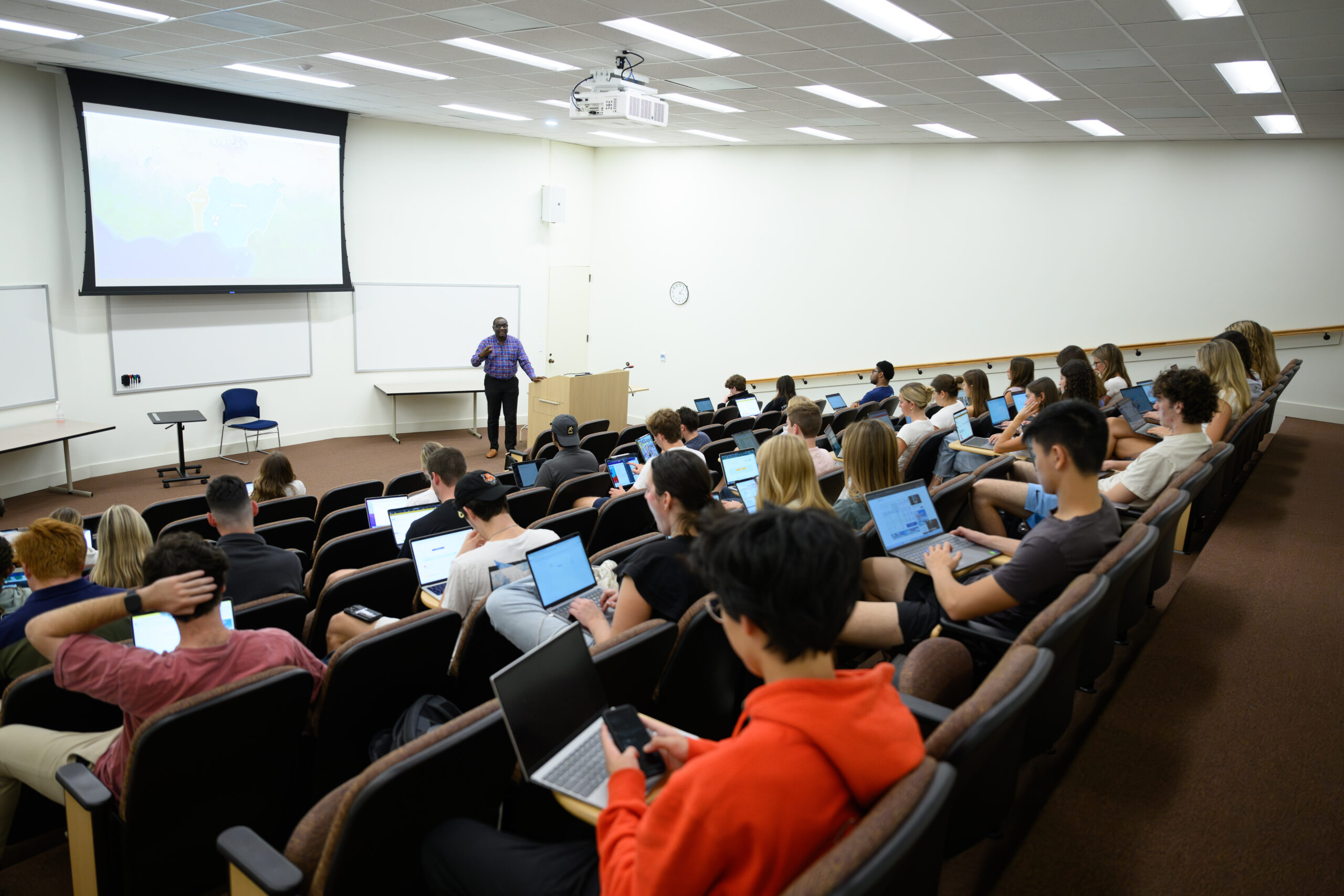
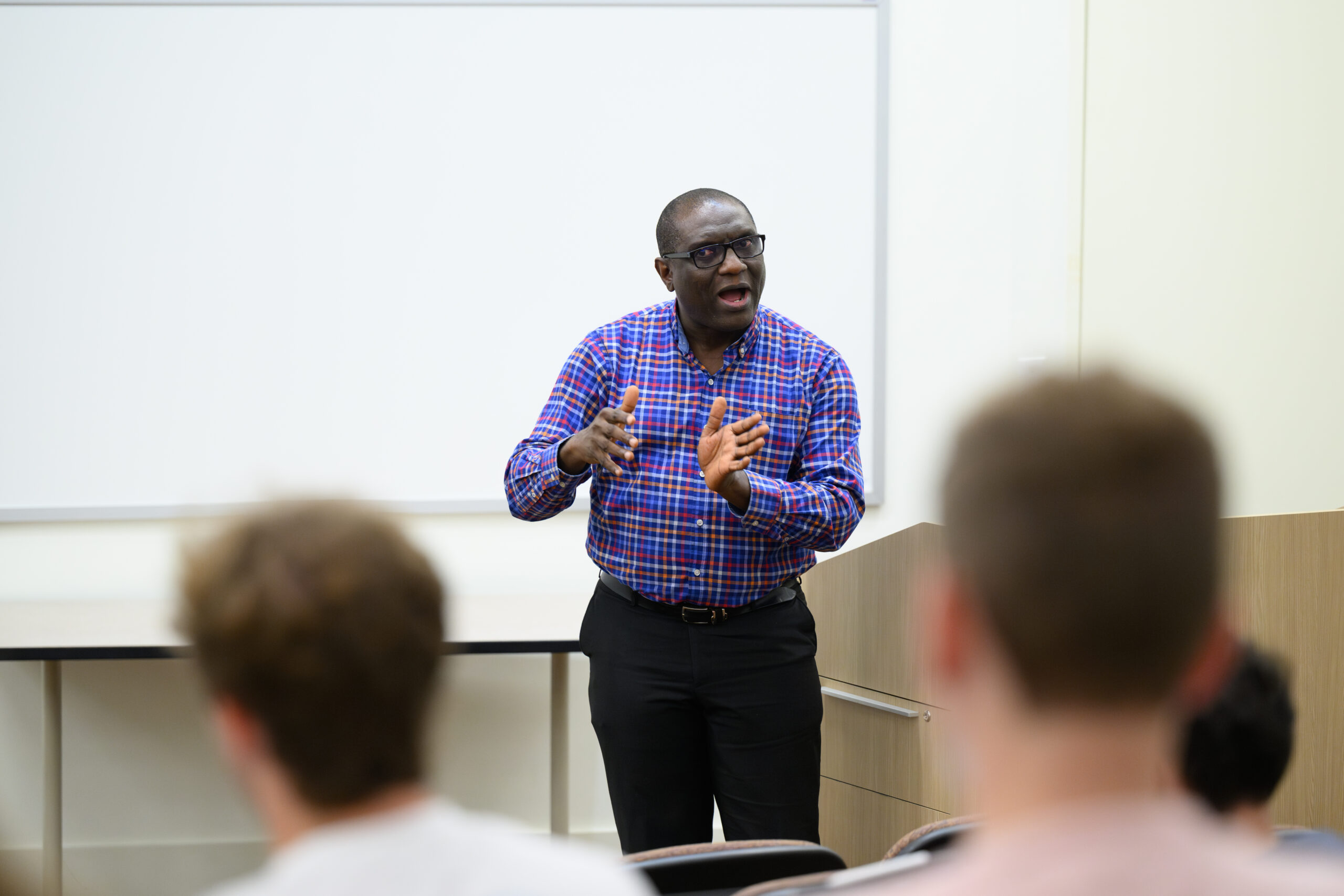
Time and circumstances have carried James to Wake Forest. His teaching and scholarship reach far beyond the borders of Nigeria, his home country, and South Africa, where he has lived, studied and worked most recently. He earned a doctorate in Visual Studies from the University of Pretoria, authoring comparative studies of artists in Nigeria and South Africa for his dissertation. He then served as a lecturer at the Federal College of Education in Zaria, Nigeria and research associate with the Visual Identities in Art and Design Research Centre at the University of Johannesburg. James’ foundation as an educator, though, took shape at Zaria Academy, in the city of Shika, Nigeria – a secondary school with a motto “learning without borders.”
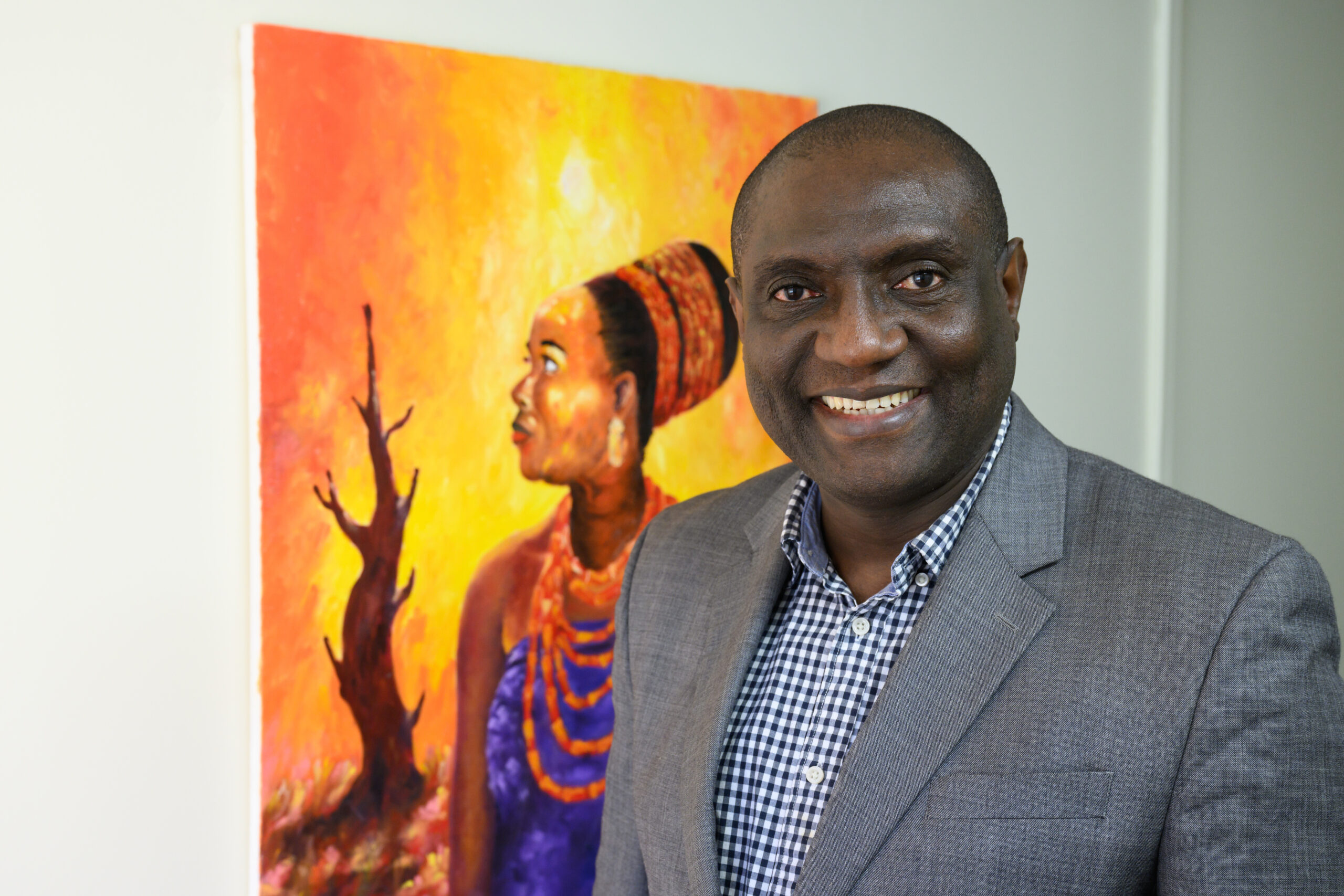
In July 2023, the Museum of Modern Art carried in its post publication an article he wrote, which brought to wider international light the contributions of Clara Etso Ugbodaga-Ngu to the structural development of art in Nigeria. Another article, “Use of Textile Fabrics in Contemporary African Paintings” was accepted as a chapter in the edited volume Beyond Media Literacy from publisher Büchner-Verlag.
Other recent articles by James have been carried by MIT Press and Routledge. By writing for publication, James realizes “the opportunity to read more broadly beyond issues that only affect art.”
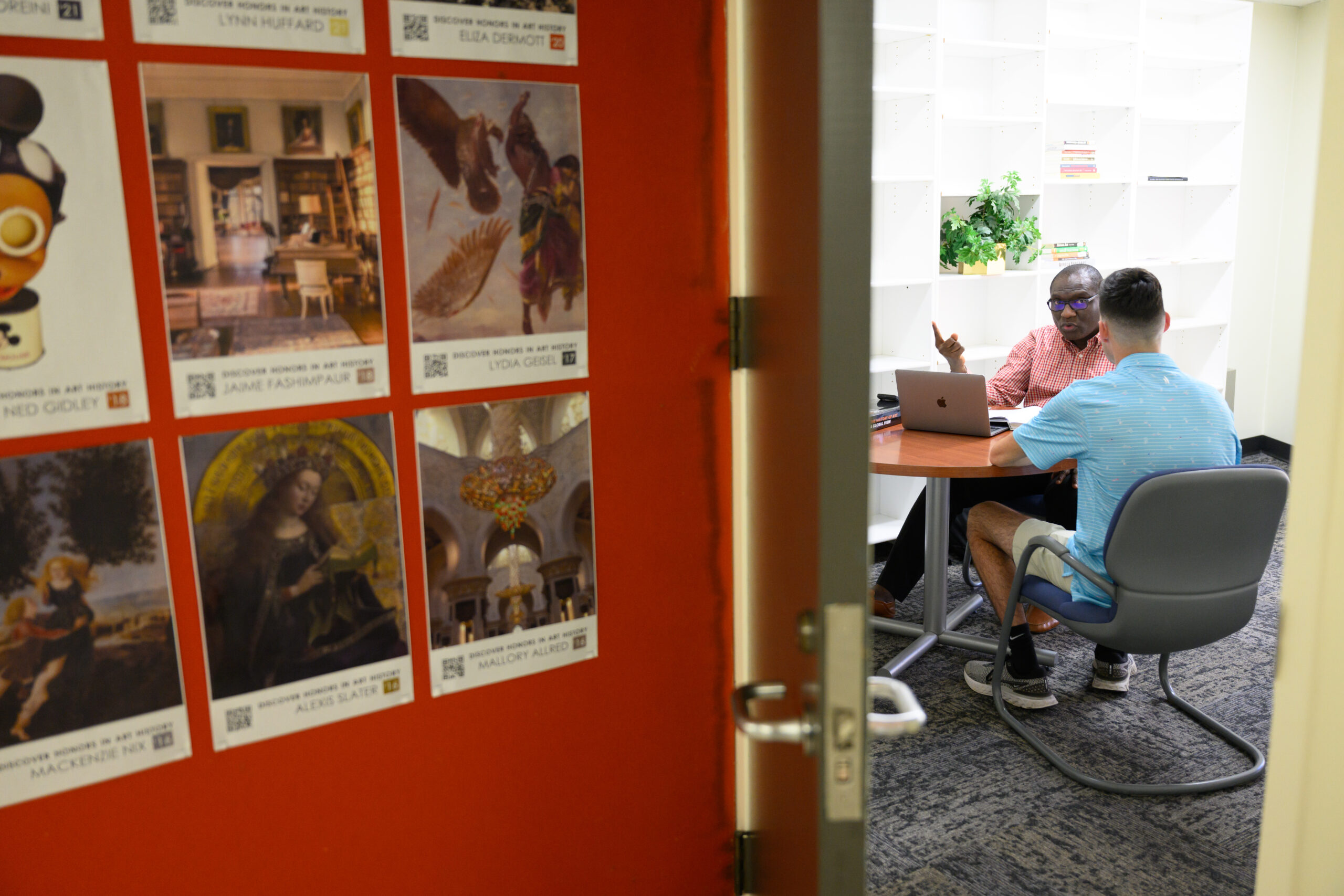
He related with frankness and humility, “Without the students, I would not be teaching.” He recounted a Zulu saying, “Ubuntu – I am because you are,” meaning that he is a teacher because his students are here to learn. His students are here to learn because he is here to teach.
Together, in the classroom, they affirm the belonging of one another. He illustrated his point by recalling the tradition of storytelling in Africa, where “entire villages gather in the moonlight around elders who tell stories that convey life values to promote humanity.” James brings this approach to his classroom in Scales Fine Arts Center. “Art is a form of storytelling that reflects humanity.” James teaches, “we are all partners in progress, carrying the load together in unity.”
Sule Ameh James’ work as a postdoctoral fellow at Wake Forest is supported in part by the Z. Smith Reynolds Foundation and gifts from numerous donors to Wake the Arts. James was awarded funding in 2022-23 from the Charlotte C. Weber Faculty Award in Art, an endowment established at Wake Forest in 1998 by prominent arts patron Charlotte C. Weber (P ’93, P ’96, GP ’23) to promote research by faculty in the Department of Art.
Written by Michael Terry (’06)
